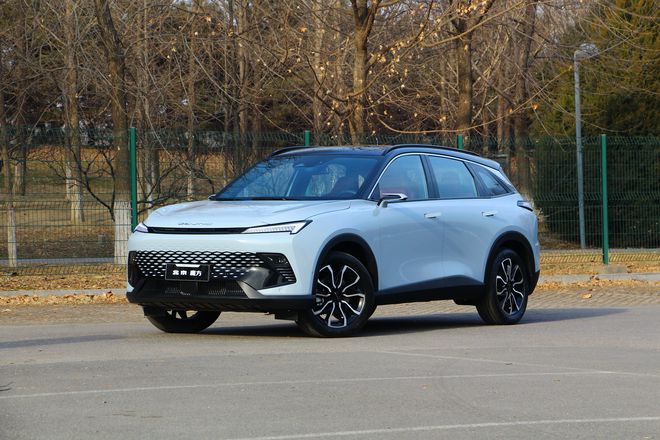
From digital prosperity to climate and health, and new frontiers for industries, these are the trending topics of the moment. As innovative approaches and new industries present important opportunities for sustainable growth, leaders from across the public and private sectors have gathered here to address the collaborative effort required for progress. What do they hope to achieve at this forum? What are their visions for the future of global collaboration? Let's hear from Indonesia's Minister of Tourism and Creative Economy.
Sandiaga Salahuddin Uno, Indonesia's Minister of Tourism and Creative Economy
First of all, we are promoting Indonesia's tourism and creative economy to the Chinese market. Our tourist arrivals from China reached 800,000 last year, but we're aiming for a 30% to 40% increase this year, reaching 1.2 to 1.3 million. We need to strengthen bilateral ties with China, not just by building infrastructure like Whoosh, which now takes us from Jakarta to Bandung in less than 40 minutes, but also through investments in tourism and the creative economy sectors. Post-COVID, we aim to provide quality and sustainability through tourism transformations.
Secondly, I'm looking to attract more investments in the digital economy, as less than 60% of our creative economy has been digitalized. There is significant potential for closer collaboration with the private sector. Finally, I'm here to promote Indonesia post-elections, showing continuity under the new government led by General Prabowo, our president-elect, starting in October. Over the last 10 years, many reforms have transformed Indonesia's economy into a green, digitalized economy with value-added and high-quality jobs. Our goal is to become a developed economy by 2045.
China, as the second largest country by population and economy, plays a strategic role. Indonesia, as the fourth most populous country, can create many synergies with China. We can collaborate on infrastructure, digital economy, health, education, and other areas to benefit the region and globally. Guangdong is a favorite destination for Indonesians and is well-developed, making it an attractive place for shopping and tourism. We hope my visit will create positive impressions for Chinese tourists to visit Indonesia and increase people-to-people relationships.
The new generations, Gen Z and Millennials, take vacations frequently, almost six times a year. If we can encourage them to visit each other twice a year, it will strengthen our ties. China has introduced a visa-free regime for Indonesians, and Indonesia will soon do the same for Chinese visitors. There is great potential for collaboration, especially in sharing best practices to improve productivity and competitiveness, lower the cost of living, and enhance prosperity.
Digital transformation is crucial, and we aim to bring the latest technology, including AI, into Indonesia's economic landscape. We want to help our micro, small, and medium enterprises embrace digital technology, currently at less than 30%. Our goal is to double this in the next five years. China can introduce the latest technology, and we can learn best practices in policy and improve digital talents from both countries. Our creativity complements China's innovation, creating a mutually beneficial relationship.
As technology continues to transform the world, one notable example lies in China's emphasis on the pursuit of high-quality development. Whether in clean energy through electric vehicles or in the field of artificial intelligence, China's advancements have captured global attention. Discussions and conversations at the forum emphasize how such efforts not only drives China's growth but also benefits the world, highlighting great potential for global cooperation. Let's hear some thoughts from attendees.
John A. Quelch, Executive Vice Chancellor at Duke Kunshan University
10 years ago or more, China transparently and publicly invested in the big three. The big three were solar panel production, lithium batteries, and electric vehicles. China has fulfilled its promise of investing in technology and innovation to the extent that now it's the biggest producer of electric vehicles in the world. 60% of total world electric vehicle production is from China. In addition to that, China is now exporting 15% of its production to international markets.
China has had a very big impact, and electric vehicles represent a perfect example of value-added, high-quality production. That is a cornerstone of the Chinese government's current economic policy.
China made a big investment in electric vehicle production. I think it was very astute because the climate crisis is real, and anything that can be done in terms of innovative technology to reduce the carbon footprint of the world and to mitigate the climate crisis is a contribution to humanity. So this commitment to electric vehicles has been a very important global phenomenon, not just for the benefit of China, but for the benefit of the world economy.
I would expect considerably more emphasis on technology, innovation, further value-added investments to develop products and capabilities that are world-class, and not just equivalent to world-class, but actually leading in terms of the contributions that the innovations make. So innovation, sustainability, technology, and value-added, I think, will be the primary themes in the economic sphere.
Samuele Ramadori, CEO of BrainBox AI, Canada
We are a Canadian technology company developing AI to solve one of our big climate challenges: emissions from buildings. Participating in economic forums around the world provides a good opportunity to have dialogues with people from different parts of the world and different industries. We operate in the building sector, but there are many sectors represented here. For me, it's a way to learn and communicate with people in my sector and understand what's happening more broadly.
We apply AI to address a significant global climate problem, and we're excited about using AI for positive outcomes like this—not just social media and other areas. However, having worked in this field for some time, we know there's a dangerous side to AI that needs consideration. Many governments have started discussing how to regulate or create frameworks to ensure AI is used for positive outcomes. We hope that major countries working on AI collaborate on this front. There has been collaboration between Canada and the UK, and Canada and the US, but we hope it extends to Asian countries like China. I believe that closer cooperation makes the world safer.
Currently, there is a greater distance between major countries due to economic negotiations or conflicts. I would prefer to see countries coming together, but right now, they're separating. We need to encourage our governments to work more collaboratively. Building trust is crucial, especially with something like AI, which has both positive and potentially dangerous aspects. As a Canadian, I want to know that what's being developed in China is positive and will be used for positive outcomes. Many things I buy in Canada are produced in China, an important part of the global supply chain. On the flip side, AI developments are often invisible, so we need to build trust through communication.
策劃:于曉娜
監制:施詩
制作:蔡于恬
新媒體統籌:丁青云 曾婷芳 賴禧 黃達迅
海外運營監制: 黃燕淑
海外運營內容統籌: 黃子豪
海外運營編輯:莊歡 吳婉婕 龍李華 張偉韜
出品:南方財經全媒體集團
聲明:以上內容為本網站轉自其它媒體,相關信息僅為傳遞更多企業信息之目的,不代表本網觀點,亦不代表本網站贊同其觀點或證實其內容的真實性。投資有風險,需謹慎。





